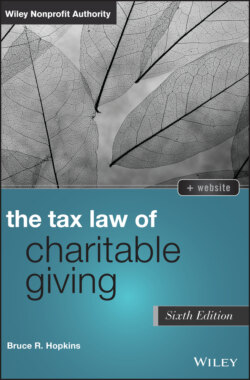Читать книгу The Tax Law of Charitable Giving - Bruce Hopkins R., Bruce R. Hopkins, David Middlebrook - Страница 30
(f) Requirement of Donor Ownership
ОглавлениеA related fundamental principle is that a donor, to be a donor, must contribute property that he, she, or it owns.
An illustration of this principle occurred following the grant by the U.S. Forest Service to two individuals, who owned a ranch, of a permit to graze livestock on a parcel of government-owned land in a neighboring national forest. This permit did not allow the permit holder to transfer or sell it; if the property was sold, the permit had to be waived back to the federal government or be canceled. The ranch was subsequently sold; the grazing permit reverted to the government. These individuals claimed a charitable contribution deduction for the alleged value of the permit. A court held that grazing and livestock use permits of this nature do not convey any title, right, or interest to or in the permit holder. This court observed that, because the federal government already held all right, title, and interest in and to the property, it did not receive any value when the permit was waived back to it. The court sagely noted that “[o]ne cannot donate something one does not own or possess.”179
Another illustration of this fundamental point was provided by a case involving a lawyer who contributed to a tax-exempt university files of photocopied materials he had received from the federal government in connection with his representation of a criminal defendant in a high-profile case. Under the law of the state involved, lawyers do not own their clients' case file but rather maintain mere custodial possession of it. Because this lawyer did not possess an ownership interest in the materials, he, in the words of a court, “was not legally capable of divesting himself of the burdens and benefits of ownership or effecting a valid gift of the materials.”180 Thus, the court ruled that a charitable contribution deduction was not available for this gift.
